#mosquitobite
Text
#mosquitorepellentplants#mosquitorepellentbracelet#mosquitorepellentcream#GMosquitoRepellent#GeneticallyModifiedMosquito#RepelMosquitoes#NoMoreMosquitoes#MosquitoFreeZone#GMORepellent#MosquitoesBeGone#GeneticMosquitoRepellent#agua#ant#arachnid#amazonrainforest#ants#bugs#bugsofinstagram#entomologia#insect#entomology#insectos#insecto#insects#mosquito#mosquitobite#mosquitobites#mosquitocontrol#mosquitokiller#wasps
0 notes
Text
Day 4 Stinktober
😺🦟 Mr. Whiskers meets an unexpected mosquito! 😅🐾
#chrispiascik20k#chrispiascik#mystinkytober23#mystinkytober#inktober#inktober2023#inktober23#stinktober#animation#adobe#adobefresco#fresco#scaredycat#ScaredyCatAdventures#MosquitoMayhem#mosquito#mosquitobite#AnimatedWhiskers
0 notes
Video
youtube
Now For SOMETHING COMPLETELY DIFFERENT ( GALACTIC MOSQUITOS ).
0 notes
Text
remember girlies to put two estradiol under your pillow at night if you want a visit from the mosquito-bites fairy
3 notes
·
View notes
Photo
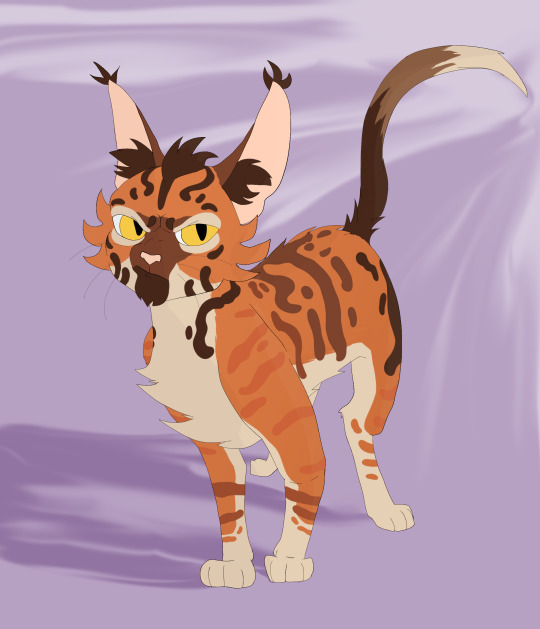
Literally just a little bug boy.
#wc oc#wc ocs#he is mosquitokit & I have no idea what his warrior name should be <3#slightly leaning towards mosquitobite
3 notes
·
View notes
Text
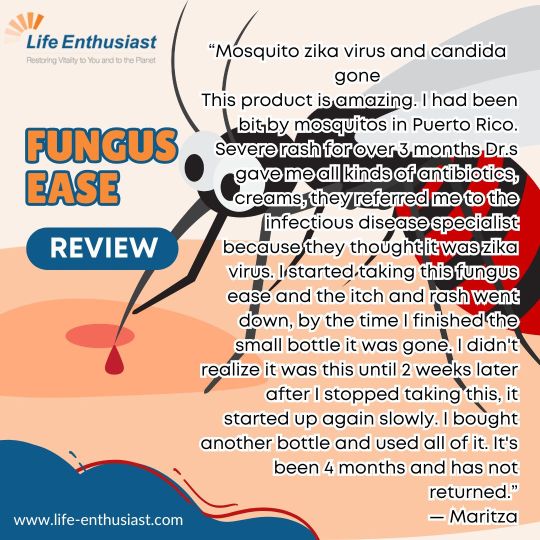
Today, I'd like to share a brief yet valuable story, particularly for those who have been bitten by a mosquito carrying the Zika virus. This incident occurred a few months back to one of our customers while on a trip to Puerto Rico.
The positive update is that she's fully recovered now. However, the downside is that she endured unnecessary suffering for months before discovering a solution: https://www.life-enthusiast.com/shop/earth-friend-fungus-ease/
Now, let me hand over the message to her, allowing her to share her story firsthand.
#ZikaStory#MosquitoBites#PuertoRicoTrip#FungusEaseSuccess#RecoveryJourney#HealthJourney#NaturalSolution#ZikaPrevention#MosquitoProtection#CustomerTestimonial
0 notes
Link
#caninehealth#Doghealth#FleaandTickControl#HeartwormDisease#HeartwormInfections#HeartwormInfestation#HeartwormLifeCycle#HeartwormMedications#HeartwormPrevention#HeartwormSymptoms#HeartwormTesting#HeartwormTreatment#MosquitoBites#NaturalRemedies#ParasitePrevention#VeterinaryCheck-ups
0 notes
Text
Jamaica Declares Dengue Outbreak With Hundreds of Confirmed and Suspected Cases
#dengue#mosquito#virus#malaria#chikungunya#zika#mosquitobites#aedesaegypti#health#diseases#dengueoutbreakinJamaica#Denguefever#denguevirus#denguesymptoms
0 notes
Text
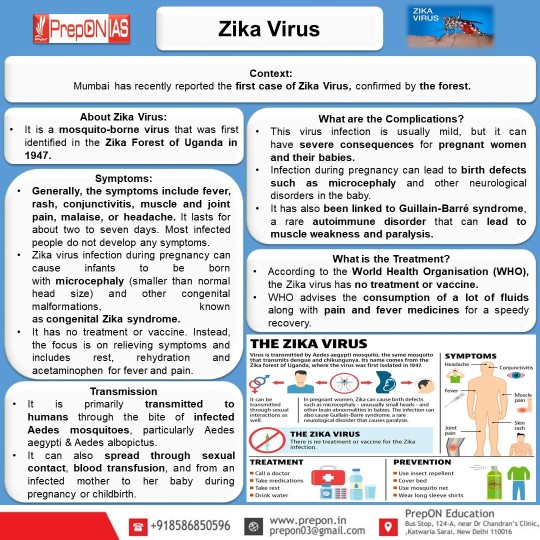
Zika Virus
#ZikaVirus#zika#mosquitobornevirus#MosquitoBorneDiseases#brihanmumbaimunicipalcorporation#BMC#mosquitoes#mosquitobites#zikaforest#Uganda#worldhealthorganization#zikasyndrome#dailycurrentaffairs#currentaffairs#generalknowledge#upsc#upscprelims2024#upscprelims#upsc2023#infographic#india#indiannews
0 notes
Text
The Fight Against Wild & GM (Genetically Modified) Mosquitoes
Biotech company releases 500M genetically modified mosquitoes into the wild to control the mosquito population. Scientists hope these bugs can help stop the spread of some dangerous viruses over time.
With over 200 species of wild mosquitoes buzzing around America and the U.S. territories. One type that’s common in many parts of the country is the Aedes Aegypti. It can spread diseases like Malaria, Dengue, Zika, Yellow Fever, Mayaro, West Nile and Chikungunya through its bite.
Now if that wasn’t bad enough, scientists have proven that mosquitoes are spreading Buruli Ulcer (Mycobacterium ulcerans infection). Buruli (a flesh eating disease) is a chronic debilitating disease that affects the skin and sometimes bone and can lead to permanent disfigurement and long-term disability.
Mosquitoes Are a Growing Public Health Threat, Reversing Years of Progress. Climate change and the rapid evolution of the insect have helped drive up malaria deaths and brought dengue and other mosquito-borne viruses to places that never had to worry about them — The New York Times
Mosquito activity can vary depending on the specific area and the time of year. In general, mosquitoes are more active during the warmer months, typically from late spring through early fall. However, the exact timing and abundance of mosquitoes can be influenced by several factors, including temperature, precipitation, and local environmental conditions.
To Minimize mosquito encounters and reduce the risk of mosquito-borne diseases, it’s a good idea to take preventive measures such as using the right kind of mosquito repellent, wearing long-sleeved clothing helps, and eliminating sources of standing water around your property, as standing water is where mosquitoes lay their eggs. Additionally, local health authorities and mosquito control agencies often monitor and manage mosquito populations to help mitigate the spread of diseases, but unfortunately the products aren’t working with the rapid expansion of new mosquito and vector-borne species, as they are Immune to Deet and or Citronella.
To Combat mosquitoes, we created BiteRepel and have produced three versions of BiteRepel:
BiteRepel Outdoors - Indoor / Outdoor Home Barrier
BiteRepel Topical - Personal Protection Indoor/ Outdoor
BiteRepel Pets & Livestock – Flea & Tick Prevention.
Important to add that BiteRepel Products are Guaranteed Eco-Friendly | Biodegradable | Sustainable | Non-Toxic | Natural | Vegan | 100% Organic | DEET FREE | Citronella FREE | Paraben FREE | Gluten FREE | Recyclable | Ethical | Environment Safe | PET Safe | Ozone & Reef Friendly
See FAQ page for more details & use instructions
BiteRepel Website
#aedesaegypti#Dengue#zika#yellowfever#mayaro#westnile#westnilevirus#chikungunya#buruliulcer#mosquito#mosquitobite#mosquitorepellent#mosquitorepellant#naturalmosquitorepellent#naturalmosquitocontrol#bugrepellent#bugrepellant#insectrepellent#insectrepellentspray#mosquitoesrepellent#repellentmosquito#mosquitorepellentspray#GMosquitoes#mosquitorepellentbodyspray#mosquitorepellents#mosquitorepellentforkids#mosquitorepellentpatch#mosquitorepellentforbabies#GMosquitoRepellent#GeneticallyModifiedMosquito
1 note
·
View note
Text
Chikungunya is a fever which is an illness that can be caused by a virus and it can spread by mosquitoes.
#Chikungunya#ChikungunyaFever#chikungunyavirus#fever#vomiting#headache#drugcarts#pharmacy#onlinepharmacy#mosquitoes#mosquitobites#CHIKV#viralfever#jointpain#albopictusmosquitoes
0 notes
Text
Mosquito Killer Lamp
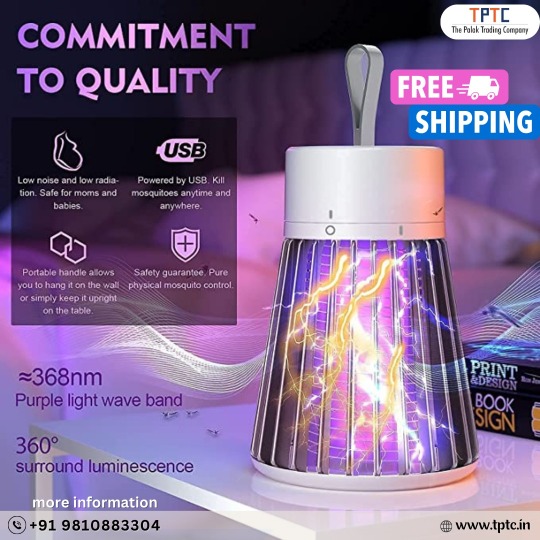
Very effective Mosquito Killer Lamp with USB
Free shipping all over India
So buy now fast
098108 83304
0 notes
Link
Are you tired of those itchy red bumps on your skin? 🦟🦟 In this article, we will explore the differences between flea bites and mosquito bites, and the reactions they cause on human skin. Understanding these distinctions can help you identify the culprit behind your discomfort and take appropriate measures for relief. Flea bites are notorious for their intense itchiness and small, raised red bumps. 🚫🐾 These bites are usually found in clusters or lines and are commonly located around the ankles and lower legs. Fleas are pesky insects that feed on the blood of mammals, including humans, and their bites can cause allergic reactions in some individuals. On the other hand, mosquito bites are characterized by their round, swollen appearance and the telltale itch they bring. 🦟🌡️ Mosquitoes are attracted to the carbon dioxide we exhale and their bites can occur anywhere on the body. These blood-sucking insects inject saliva into the skin, which triggers an immune response and leads to the familiar redness and swelling.1. Understanding Flea Bites: How They Affect Human SkinFlea bites can have a significant impact on human skin, causing irritation, itching, and redness. These tiny pests inject saliva into the skin, which can trigger an allergic reaction in some people. 🦟 Common symptoms of flea bites include small red bumps, clusters of bites, and intense itching. Scratching can lead to secondary infections, so it's important to resist the urge. 🚫👋 Flea bites often occur on the lower legs, ankles, and feet, as these areas are more exposed and easily accessible to fleas. However, they can also appear on other parts of the body. 🦵👣 For relief, applying a cold compress or using over-the-counter anti-itch creams can help alleviate symptoms. Keeping the affected area clean and avoiding scratching is crucial for preventing infections. 🧴🛀 If you suspect flea bites, it's important to identify and eliminate the source of the infestation. Treating pets, washing bedding in hot water, and vacuuming regularly can help control fleas in your home. 🐶🛏️ Severe reactions to flea bites are rare but possible. If you experience symptoms such as extreme swelling, difficulty breathing, or hives, seek medical attention immediately. 🚑⚠️2. Mosquito Bites: Exploring the Impact on Human SkinMosquito bites can have a significant impact on human skin, causing itching, redness, and swelling. 🦟 When a mosquito bites, it injects saliva into the skin, which contains anticoagulants and proteins that trigger an immune response. This immune response leads to the release of histamine, causing the characteristic itching sensation. Scratching can worsen the inflammation and increase the risk of infection. Some people may experience more severe reactions, such as large welts or even blisters. These reactions are often a result of an allergy to mosquito saliva. Repeated mosquito bites can also lead to hyperpigmentation, leaving dark spots on the skin. It is important to protect yourself from mosquito bites to avoid these skin irritations. Preventive measures include using insect repellent, wearing long sleeves and pants, and avoiding areas with high mosquito populations. 🌿 If you do get bitten, applying a cold compress can help reduce swelling and itching. Over-the-counter creams and antihistamines may also provide relief. Remember, scratching mosquito bites can lead to infection, so it's best to resist the urge and let them heal naturally. 🙅♀️3. Differentiating Flea Bites and Mosquito Bites: Key CharacteristicsFlea bites and mosquito bites can be easily confused, but there are key characteristics that can help differentiate them: Flea bites often appear in clusters or lines, while mosquito bites are usually singular. Flea bites tend to be smaller and more raised, while mosquito bites are larger and flatter. Flea bites are intensely itchy, while mosquito bites may cause mild to moderate itching. Flea bites can cause a red halo around the bite, while mosquito bites typically do not. Flea bites can leave a small puncture mark in the center, while mosquito bites do not. It's important to note that everyone's reaction to bites can vary, so these characteristics may not always apply. If you're unsure, consult a healthcare professional for proper diagnosis and treatment. 🦟🚫4. Human Skin Reactions to Flea Bites: Symptoms and IdentificationFlea bites can cause various skin reactions in humans. Identifying these symptoms is crucial for timely treatment. 🔍 Common signs include redness, swelling, and itching at the bite site. Bites often appear in clusters or lines. 🕷️ Some people may develop a small, raised bump or blister filled with fluid. Scratching can lead to secondary infections. 🔬 Severe reactions may result in hives, intense itching, and even anaphylaxis in rare cases. Seek medical attention immediately if these symptoms occur. 🌡️ It's important to differentiate flea bites from other insect bites or skin conditions. Consult a healthcare professional for accurate diagnosis. 🛡️ Preventing flea infestations and using insect repellents can help avoid these unpleasant skin reactions. Keep your environment clean and pet flea-free. 5. Mosquito Bites vs. Flea Bites: Comparing Itchiness and SwellingMosquito bites and flea bites can both cause itchiness and swelling, but there are some differences to consider: Mosquito bites tend to be more itchy than flea bites, often causing a strong urge to scratch. Flea bites, on the other hand, may cause a milder itch, but can result in more noticeable swelling. Both bites can cause redness, but mosquito bites often have a larger, more raised bump compared to flea bites. While mosquito bites typically last a few days, flea bites may persist for several weeks if not treated properly. Applying a cold compress or using over-the-counter creams can help relieve itchiness and reduce swelling for both types of bites. Remember, prevention is key! Using insect repellent and keeping your living spaces clean can help minimize the chances of getting bitten by mosquitoes or fleas. 🦟🚫6. Treating Flea Bites and Mosquito Bites: Effective Remedies and Prevention MethodsFlea bites and mosquito bites can be irritating and uncomfortable. Here are some effective remedies and prevention methods: Apply a cold compress to reduce itching and swelling. Use over-the-counter creams or ointments containing hydrocortisone or calamine lotion. Take an antihistamine to relieve itching. Keep the affected area clean and dry to prevent infection. Avoid scratching to prevent further irritation and potential infection. 🌿 Use natural remedies like aloe vera gel or tea tree oil for soothing relief. Wear long sleeves and pants, and use insect repellent to prevent bites. Eliminate standing water around your home to reduce mosquito breeding grounds. 🌬️ Use fans or screens to keep mosquitoes away from your living spaces. 🌸 Plant mosquito-repelling plants like lavender, citronella, or marigold in your garden. 7. When to Seek Medical Attention: Severe Reactions to Flea and Mosquito BitesIf you experience any of the following symptoms after a flea or mosquito bite, seek medical attention immediately: Difficulty breathing or swallowing Swelling of the lips, tongue, or throat Dizziness or fainting Rapid heartbeat or chest pain Severe itching or rash spreading beyond the bite area Development of hives or blisters These signs may indicate an allergic reaction, which can be life-threatening. 🚑 In conclusion, understanding the differences between flea bites and mosquito bites is crucial for identifying the culprit behind itchy skin reactions. Flea bites often appear as small, red bumps with a central puncture mark, while mosquito bites tend to be larger, raised, and surrounded by a red halo. 🦟🚫🚫 While both bites can cause discomfort, flea bites are known for their intense itchiness and potential to develop into a rash. On the other hand, mosquito bites are more likely to cause immediate swelling and a mild itch. Remember to take necessary precautions to avoid these pesky insects and protect your skin! 🛡️🌿🌞 https://fleatreatment.uk/flea-bites-vs-mosquito-bites-human-skin-reactions/?_unique_id=64a0eea4352c0
#Uncategorised#fleabites#humanskinreactions#insectbitetreatment#mosquitobites#skinallergies#aiomatic_0
0 notes
Text
Vedarma Mal Guard
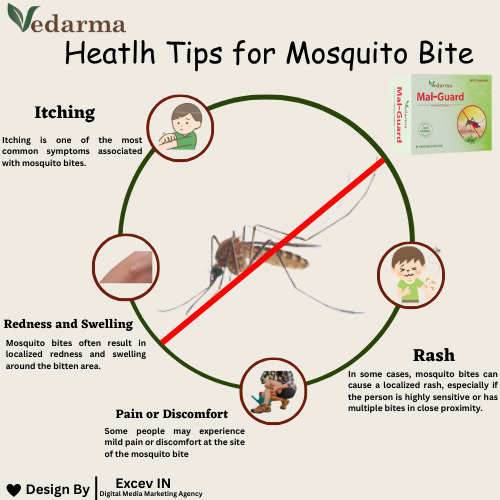
▶When a mosquito bites you, it injects saliva into your skin, which can trigger an allergic reaction and cause itching.
▶The size of the swelling can vary depending on the individual's sensitivity to mosquito bites.
▶Mosquito bites usually form raised bumps or welts on the skin. These bumps can be small or large and are often pale or reddish in color.
Order Now : https://vedarma.com/product/mal-guard/
0 notes
Text
#mosquitorepellent#naturalsolutions#mosquitocontrol#lifeoutside#summernights#gardenparties#insectprotection#chemicalfree#herbs#diyrepellent#mosquitofree#terrace edge#mosquitobites#lavenderoil#citrus#mosquitoprevention#essentialoils#backfun#insectrepellent#outsideisfun#environmentallyfriendly#sustainablesolutions#mosquitogel#outdoorenjoyment
0 notes
Video
youtube
10 Home Remedies for Insect Bites
Insect bites are an unavoidable part of our lives, especially during the summer months. Sometimes, these bites are more than just annoying, they can cause pain, itching, and even swelling. Fortunately, there are some home remedies that you can use to alleviate the symptoms of insect bites.
Here are 10 home remedies for insect bites that you can try.
1. Crushed Ice
When an insect bites you, many times it will leave behind venom or its saliva, causing a reaction such as itching or swelling. By applying crushed ice to the affected area, you can help reduce the inflammation and numb the pain. Simply wrap some ice cubes or a freezing pack in a towel or cloth and apply it to the affected area for 10-20 minutes at a time. Make sure to take breaks in between applications to prevent skin damage from overexposure to extreme cold. Additionally, washing the bite with soap and water before applying ice can also help lessen potential bacterial infection.
2. Aloe Vera
Aloe vera is known for its ability to reduce inflammation and soothe irritated skin. Simply cut off a piece of fresh aloe vera and apply the gel directly onto the affected area. Repeat this process as needed, and you should start to notice a decrease in itchiness and redness within a few hours. You can also use store-bought aloe vera gel if you don't have access to the plant itself. Another option is to freeze small cubes of aloe vera gel and then apply them onto bites as needed. The cooling sensation will provide additional relief from itchiness or discomfort.
3. Baking Soda
The alkaline nature of baking soda helps to neutralize the acidic venom found in insect bites, reducing inflammation and easing discomfort. To use this home remedy, mix a teaspoon of baking soda with a few drops of water to create a paste. Apply the paste directly to the affected area and leave it on for 10-15 minutes before rinsing it off with cool water.
4. Garlic
Garlic works as a natural anti-inflammatory agent that helps to combat the swelling and redness associated with insect bites. Simply crush a garlic clove and apply it to the affected area, leave it on for twenty minutes before rinsing off with cool water. Alternatively, you can make a paste by mixing a few crushed garlic cloves with coconut oil for added soothing benefits. However, be sure to test a small area first to ensure you don't have any adverse reactions or skin sensitivities to garlic.
5. Oatmeal
Oatmeal is a natural anti-inflammatory that can provide fast relief from insect bites. To use oatmeal as a home remedy for insect bites, start by making a paste with equal amounts of oatmeal and water. Apply the mixture to the affected area, leave it on for around 10-15 minutes, then rinse off with cool water. You can also use an oatmeal bath to treat multiple bites or larger areas of skin. Just mix a cup of uncooked oats into your bathwater and soak for 20-30 minutes.
6. Honey
This sweet and sticky substance has been used for centuries as a natural remedy for various ailments, including insect bites. Its antibacterial and anti-inflammatory properties can help reduce swelling and prevent infection, while its natural sugars can provide a soothing effect. Simply apply a small amount of honey to the affected area and leave it on for 10-15 minutes before rinsing it off with cool water.
7. Toothpaste
Toothpaste is a common household item that can be used as a simple home remedy for insect bites. Simply apply a small amount of toothpaste to the affected area, and leave it on for a few minutes before rinsing off. The alkaline properties of toothpaste can help to neutralize the acidic venom injected by insects, reducing the pain and inflammation caused by the bite. Additionally, toothpaste contains menthol, which can provide a cooling sensation and further alleviate discomfort. While toothpaste is not a substitute for professional medical treatment in cases of severe allergic reactions, it can be a quick and convenient way to relieve the symptoms of minor insect bites.
8. Aspirin Paste
Aspirin contains salicylic acid which has anti-inflammatory properties and can help relieve itching and redness caused by insect bites. Simply crush up some aspirin tablets and add a bit of water to make a thick paste. Then, apply the paste directly onto the insect bite and let it sit for about 10-15 minutes before rinsing it off with cool water. It's important to note that if you have sensitive skin or are allergic to aspirin, then this remedy may not be suitable for you.
9. Onion
The natural compounds in onions have anti-inflammatory properties and can reduce swelling and pain. Simply slicing a fresh onion and placing it on the affected area can help ease the pain, reduce inflammation, and prevent infection. Onion juice can also be applied directly to the bite for similar benefits. Another option is to create an onion paste by blending onion slices with water and applying it to the bite before covering it with a bandage. This can be left on for a couple of hours or overnight for maximum results.
10. Salt
Salt has antiseptic properties that can help prevent infection and reduce swelling. Simply mix a tablespoon of salt in a cup of warm water and use a cotton ball or clean cloth to apply the mixture to the affected area. Leave it on for about 10-15 minutes before washing it off. This should help reduce swelling, redness, and itching. Additionally, you can also make a paste with salt and water to apply directly to the bite.
#youtube#insectbites#insectstings#insects#insect#mosquito#mosquitobites#mosquitoes#beesting#bugs#stings#homeremedies#homeremedy#bugbites#remedies#remedy
0 notes